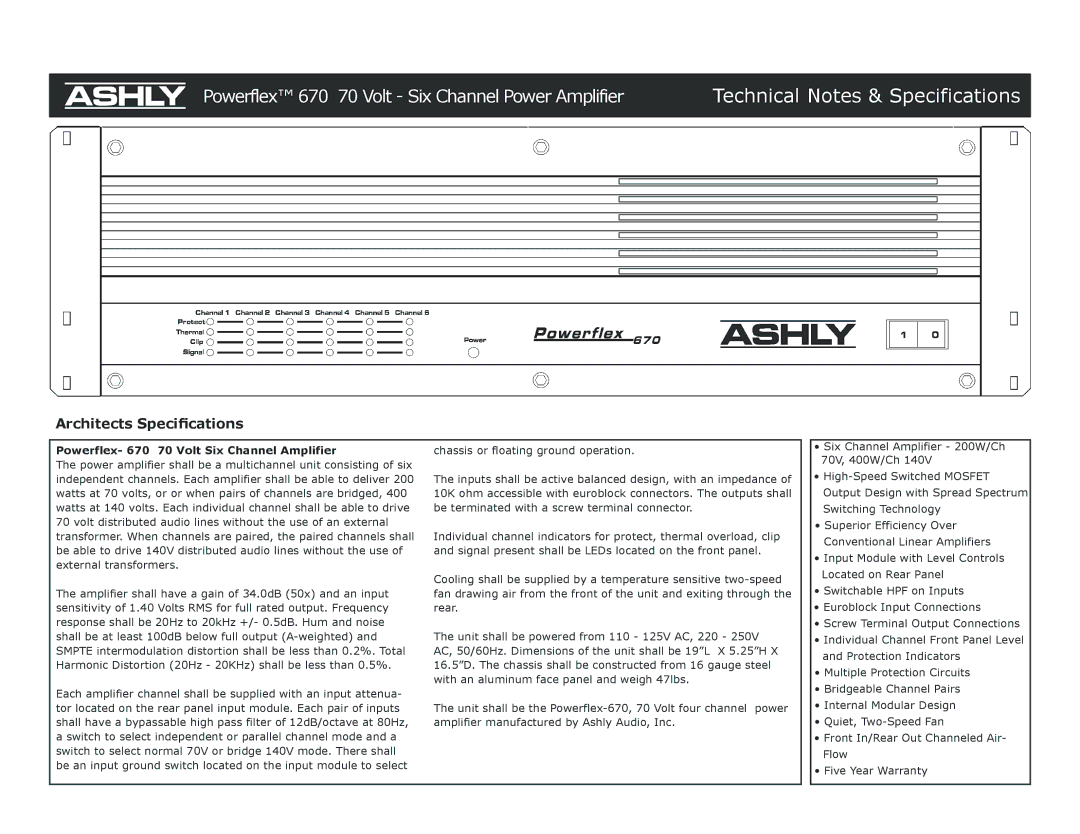670 specifications
The Ashly 670 is a high-performance audio processor known for its advanced capabilities in sound reinforcement and audio control. Designed for both professional audio engineering and installation spaces, this digital signal processor (DSP) combines innovative features with user-friendly design, making it a staple for sound system designers and audio technicians.One of the main features of the Ashly 670 is its powerful processing capabilities. Equipped with dual-channel architecture, it can manage complex audio environments with ease. The unit boasts 24-bit digital processing and a sample rate of 48 kHz, ensuring high-resolution audio fidelity. The Ashly 670 also includes a range of onboard algorithms for equalization, compression, limiting, and crossover functions. This versatility allows users to tailor their audio settings according to the specific requirements of any venue, whether it’s a concert hall, conference room, or corporate space.
In terms of connectivity, the Ashly 670 is incredibly versatile. It provides balanced XLR and 1/4" inputs, along with balanced XLR outputs, making it compatible with a wide variety of sound systems. Additionally, it features digital I/O options for integration with other digital audio systems, expanding its usability in modern installations.
The user interface of the Ashly 670 is designed with simplicity in mind. It incorporates a bright, legible LCD display, which provides users with real-time feedback on their settings and adjustments. The front panel controls allow for easy navigation through the various functions, enabling technicians to make on-the-fly changes during live events.
Moreover, the Ashly 670 supports remote control options, allowing users to manage the processor from a distance, which is particularly useful in large venues. Its network capability enables configuration and monitoring through a dedicated software application, providing deeper control over the audio processing parameters and simplifying system management.
In summary, the Ashly 670 stands out for its powerful DSP capabilities, extensive connectivity options, and intuitive user interface. It is designed to meet the stringent demands of professional audio environments while ensuring high-quality sound performance. With its advanced features and reliability, the Ashly 670 remains an essential tool for audio professionals worldwide, delivering exceptional audio processing capabilities in nearly any application.

